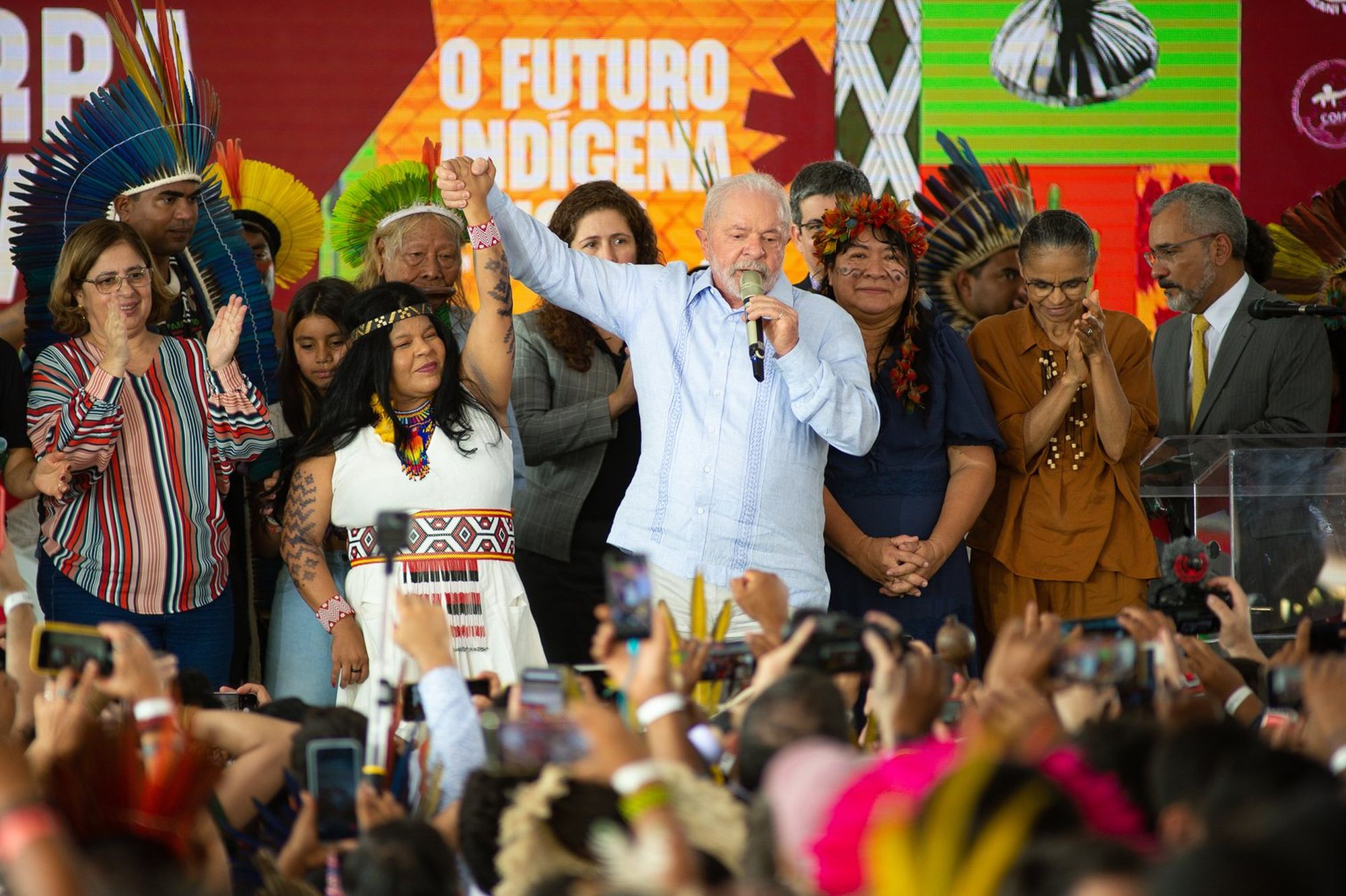The Brazilian Congress has dealt a hammer blow to Luiz Inácio Lula da Silva’s pledges to protect the environment and respect the rights of Indigenous people.
Members of the lower house, including those backed by the powerful agribusiness lobby, approved a bill that will limit the recognition of new Indigenous reservations. It was even supported by members of Lula’s own Workers’ Party (PT) to appease those in their constituencies who want growth and urgent poverty reduction.
The controversial legislation, which still needs to be approved by the Senate as well as Lula, states only land occupied by Indigenous people as of 5 October 1988 – when the Brazilian Constitution was enacted – will be considered for legal protection.
There are 730 Indigenous territories that 300 different ethnic groups consider ancestral lands, and many will have either already been evicted by that date, or not yet had their presence formally recognized.
Critics say the law would encourage misappropriation, unrestricted deforestation and disregard for Indigenous rights.
Indigenous and environmentalist sentiment and mobilization is running strong in large swathes of the country and the bill has already sparked protests in São Paulo, where police used force to disperse Guarani Indian demonstrators blocking a major motorway with flaming tires.
Approval of the bill was the latest in a series of setbacks. Last week, Congress passed more measures to weaken the environment and Indigenous peoples ministries and relax laws protecting the Atlantic forest running along the country’s east coast.
But the fact these measures were approved by the Chamber of Deputies with the support of legislators from Lula’s party shows the lack of consensus within the ruling coalition over the environmental and Indigenous-focused agenda.
It also raises questions over the political merits of Lula’s campaign promise to embrace the green agenda after four years of Jair Bolsonaro’s government dismantling environmental and Indigenous protections.
Not only was this pledge key to winning votes from the left, it is essential when it comes to Brazil repositioning itself on the international stage after the isolation of the Bolsonaro years.
Early on in Bolsonaro’s term, Norway and Germany suspended millions of dollars earmarked for a fund dedicated to the preservation of the Amazon rainforest. Both countries resumed donations when Lula took office in January.
Brazil’s international image is clearly tied to its government’s relationship with environmental preservation, particularly in the Amazon, and approval of the temporal framework could tarnish this. It could also come to define Lula’s premiership.
Environmental promises vs. economic needs
Historically, both Lula and the PT have promoted redistributive social policies. In 2022, Lula was the preferred candidate in the northeast – the country’s poorest region and home to about 30% of Brazilians, for whom promises of employment and development were a major draw.
But he also won the vote of Indigenous people and students. And though the Indigenous people make up less than 0.5% of the population they are key to conservation of the Amazon and have a transnational importance that makes them valuable allies for Lula.
In Brazil, an agrarian country that also relies on extractivist activities such as mining to drive the economy, it is important to reconcile the people’s needs with the protection of natural resources. This requires moral leadership and smart negotiating skills and Brazilians elected Lula because they believed he had both, as demonstrated in the past.
This bill could still be blocked by the Senate and also by the Supreme Court, which will vote next week on whether it violates the constitution. But it has already come a long way.
There’s little time left for Lula’s government to show that it can still deliver on its promises. The political and media rightwing are waging systematic and relentless attacks, but Lula cannot allow his environmental and Indigenous-focused agenda to be turned against him.
That would be a defeat for his own aspirations, the future of an entire nation and a planet that urgently needs to defend itself against unchecked predation and ecocide that starts with the Amazon.
Manuella Libardi is a Brazilian journalist and the Brazil editor for democraciaAbierta. She holds a master’s degree in International Relations. Twitter: @ManuellaLibardi
Francesc Badia i Dalmases is a Mexican journalist, a film producer, and the founder and director of democraciaAbierta, the Latin American associate section of openDemocracy.net, London. A political analyst, author, and publisher, Francesc specializes in geopolitics and international affairs. Francesc is a regular contributor to international newspapers like El País or The Guardian, a Pulitzer Center grantee, and was awarded the prestigious Gabo Prize in 2021 for his work in the Amazon. Follow him on Twitter: @fbadiad Instagram: francescbadiaidalmases3
This article appeared originally in Open Democracy – https://www.opendemocracy.net/





